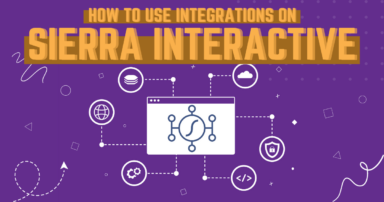In recent years, the use of artificial intelligence (AI) in many industries has increased rapidly. AI is used for various tasks such as marketing automation, real estate blogging, data analysis, and customer service. The real estate industry is no exception; AI can be an invaluable tool for agents seeking more clients.
AI technology allows agents to respond quickly to inquiries from multiple sources while managing other aspects of their business. Machine learning algorithms can understand customer questions and generate accurate responses tailored to each inquiry. Data analysis also allows agents to gain insights into buyer preferences, which can be used when marketing properties or creating customized solutions.
Finally, AI-driven chatbots provide personalized customer service 24/7, allowing agents to expand their presence beyond traditional office hours. By leveraging these technologies, real estate agents can create a streamlined experience that helps them attract new clients and build relationships with existing ones. In conclusion, this article explores how AI technology can help real estate agents improve their performance and reach more potential buyers in today’s competitive market.
What is Artificial Intelligence?
Artificial Intelligence (AI) is revolutionizing the way we live, work, and interact with one another. It has created a paradigm shift in which machines can perform complex tasks that were once thought impossible for computers to achieve. AI encompasses a range of techniques, including machine learning, deep learning, natural language processing, and computer vision. The applications of these technologies have been far-reaching, from self-driving cars to aiding healthcare professionals in diagnosing illnesses. At its core, AI allows us to access data on an unprecedented scale and generate insights faster than ever before.
Agents can benefit greatly from this technology as it helps them reach more clients through automation and predictive analytics, allowing them to focus their efforts on delivering excellent service rather than spending time marketing themselves online or searching for new customers. AI can also provide invaluable insight into customer behavior – such as what type of properties they are interested in – enabling agents to tailor their services accordingly. With the power of AI at their fingertips, real estate agents can maximize their chances of success by reaching out to prospective buyers quickly and efficiently.
Benefits For Real Estate Agents
AI technology has revolutionized how real estate agents engage with clients and has presented great benefits for professionals in this field. AI solutions help to automate many of the mundane tasks associated with being a real estate agent, freeing up more time for meaningful customer engagement.
The main advantages that AI brings to real estate agents include the following:
- Data Analysis: AI-powered automated processes help analyze large amounts of data quickly and accurately, enabling smarter decision-making when it comes to property investments or marketing campaigns.
- Automated Processes: Agents can save time by automating routine activities such as document processing, lead generation, lead qualification, scheduling appointments, and client follow-ups via chatbot conversations.
- Customer Engagement: AI helps agents connect better with their customers by providing personalized recommendations based on individual preferences and historical analysis. This leads to increased customer satisfaction, improved conversion rates, faster sales cycles, and higher ROI.
In today’s fast-paced world—where competition is fierce, and information overload is common—AI presents an opportunity for real estate agents to stay ahead of the curve and reach more clients than ever before. Utilizing these advanced technologies allows them to focus less on administrative duties to provide quality service backed by robust analytics – all while saving valuable resources like time and money.
Using AI to Enhance Client Engagement
Real estate agents increasingly leverage artificial intelligence (AI) technology to enhance client engagement. AI enables real estate agents to analyze large amounts of data quickly and accurately, allowing them to better understand their client’s needs and preferences. Automation tools can automate mundane tasks, freeing up time for agents to focus on more complex issues, such as understanding current market trends or analyzing potential investments. By utilizing AI-powered automation tools and data analysis capabilities, real estate agents can provide a higher level of service and reach more clients in less time.
Data mining is also becoming essential for real estate agents looking to understand their target audience. AI technology enables agents to gain insights into their customer’s buying behavior and identify new opportunities for growth by uncovering previously untapped markets or customer segments. This allows agents to customize services according to individual customer needs and create personalized experiences that will help drive loyalty and increase sales conversions. With AI-driven analytics, real estate agents can maximize profits while providing superior customer service.
Leveraging Data and Automation
Real estate agents can benefit from leveraging data and automation to reach more clients. AI-powered platforms can identify investment opportunities and trends in the market, while analytics software can monitor customer behavior. Automated processes, meanwhile, can help streamline administrative tasks. This will help real estate agents focus more time on activities that create value for their customers.
With these tools in place, real estate agents are now equipped with the necessary technology to bring about innovation within their organizations. Automation-leveraging technologies allow them to drive efficiency while providing personalized services at scale. Moreover, by utilizing data-automation solutions, real estate agents can maximize ROI and increase operational effectiveness through targeted approaches tailored to individual client needs. As a result, organizations have greater opportunities at their disposal, allowing them to tap into new markets and reach untapped potentials faster than ever before.
Integrating AI Into Your Real Estate Business
AI integration into the real estate industry allows agents to reach more clients and provide unique insights. Automation tools such as segmenting automated email campaigns, SMS messages, online scheduling, and customer segmentation help agents maximize their efforts while minimizing time invested. AI also offers powerful analytics capabilities, allowing agents to gain deeper insight into consumer behavior.
AI-driven automation enables agents to respond quickly to inquiries with personalized content tailored specifically to each prospective buyer or seller, increasing conversion rates and fostering relationships between agents and their clients. Agents who take advantage of this innovative technology will be able to expand their networks rapidly and increase profitability through increased efficiency in lead acquisition, client communication, and marketing strategies.
FAQs About Reaching More Clients with AI
What are the limitations of AI in the real estate industry?
AI is streamlining real estate businesses at a rapid rate, but several limitations must be addressed before widespread adoption. One of these is dealing with changing regulations, which require an automated system to be constantly updated. Additionally, due to their complexity, certain aspects of property transactions may require a human touch. Finally, AI can help automate mundane tasks but cannot replace agents who possess knowledge about local markets and buyers’ preferences. Despite technological advancements, humans are still essential for successfully navigating complex areas such as those found in this field of work.
How do I know if AI is right for my real estate business?
To make an informed decision about whether or not to invest in AI technology, it’s important to consider both the advantages and disadvantages of using AI in real estate.
It can help agents target new clients more effectively, quickly process large amounts of data, and automate specific tasks. However, there are drawbacks to implementing AI into a real estate business, such as the cost and complexity of developing custom AI technologies. Additionally, AI can only replicate some aspects of human interaction, limiting its effectiveness when dealing with certain types of clientele. With the right strategy and implementation plan, companies can benefit from improved efficiency gains while maintaining a competitive edge.
How much does it cost to implement AI into my business?
When it comes to implementing AI into a real estate business, several factors must be taken into consideration. The cost of AI implementation depends upon the size and scope of an individual real estate business. Certain processes need to be put in place for customer service purposes or data analysis. Companies looking for more complex AI applications may need to invest in cloud computing services. Additionally, external consulting firms should be factored into the overall budget. Ultimately, businesses should weigh all potential expenses before making any investments to assess whether or not the advantages outweigh the financial burden of integrating artificial intelligence technology into their operations.
What are the ethical considerations concerning AI in the real estate industry?
AI technology can improve efficiency in the real estate industry and bring about more complex legal issues. Understanding ethical considerations when using AI in real estate is essential for businesses implementing this technology.
Real estate ethics encompass many topics, such as fairness, privacy, and trustworthiness. In terms of AI, these concepts become even more important as unintended consequences or unforeseen risks may be associated with its use. For example, algorithms used by some real estate agents can lead to racial profiling, which should not be tolerated. Additionally, client data collection must be done responsibly and securely so that their information remains safe from cyber attacks or misuse. Furthermore, transparency plays an important role in ensuring that customers understand how their data is being handled and why certain decisions have been made regarding them.
Businesses should consider ethical considerations when implementing AI tools, such as protecting customer data and adhering to fair housing practices. Identifying potential risk areas early on will help ensure compliance and maximize the benefits of AI technologies in real estate operations.
How do I ensure my AI-powered business complies with relevant laws and regulations?
The use of AI in the real estate industry has become increasingly popular, raising questions about how to ensure legal compliance. Companies must ensure that their use of AI does not violate existing rules or regulations, review potential data privacy issues, and consider ethical implications such as transparency and discrimination. To ensure legal compliance, companies must take proactive steps such as conducting risk assessments, establishing clear policies, educating staff members, reviewing their practices against regulatory requirements, and engaging experts. By taking a strategic approach, organizations can reduce the chances of violating any applicable rules while ensuring that they remain compliant throughout all stages of their business operations involving AI usage.
Reaching More Clients with AI
The use of AI in the real estate industry has been steadily growing, but there are still limits to what AI can do. Consideration must be given to the cost associated with implementation, ethical considerations surrounding its usage, and compliance with relevant laws and regulations. An allegory may help explain how AI can assist real estate agents: imagine an agent as a lighthouse keeper watching out over waters filled with potential customers looking for properties. AI could act like a powerful searchlight capable of scanning far out into the depths of the sea, illuminating more distant prospects who would otherwise remain unseen. It is important to become knowledgeable in this rapidly advancing field so that they can make informed decisions about incorporating such technologies into their businesses and SEO strategies.

 March 9, 2023
March 9, 2023




